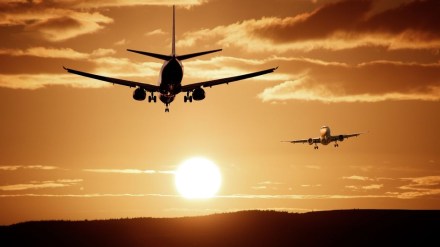The global aviation industry is grappling with a supply chain crisis that has put the brakes on the ambitious expansion plans of Indian airlines. Airbus and Boeing, the world’s two largest aircraft manufacturers, are facing severe disruptions in their production lines due to persistent shortages of critical components, skilled labour, and logistical bottlenecks. These challenges have created a cascading effect, threatening to derail the rapid growth trajectory of India’s aviation sector.
Skyrocketing Demand
India’s aviation market, among the fastest-growing in the world, has been poised for exponential growth. The rise of a burgeoning middle class, competitive airfares, and an expanding domestic network have contributed to an unprecedented surge in air travel demand. To cater to this, Indian carriers such as IndiGo, Air India, SpiceJet have placed massive orders with Airbus and Boeing over the past few years.
IndiGo, for instance, has over 500 Airbus A320neo family aircraft on order, while Air India recently announced plans for a record-breaking order of up to 500 planes split between Airbus and Boeing. However, the global supply chain crisis is causing delays that could take months or even years to resolve, putting these plans in jeopardy.
Supply Chain Crisis
Airbus and Boeing are struggling to ramp up production to pre-pandemic levels due to shortages in key components like engines, avionics, and semiconductors. Compounding the problem are workforce constraints and logistical hurdles, including shipping delays and increased freight costs.
Engine manufacturers such as Pratt & Whitney and CFM International have reported challenges in meeting delivery schedules, further exacerbating delays. With a backlog of thousands of aircraft orders globally, the ripple effects of these disruptions are particularly acute for Indian airlines, which rely heavily on timely deliveries to sustain growth.
The crisis has been compounded by quality issues at Boeing’s Renton plant, which came under intense scrutiny following a mid-air blowout of a door plug on Alaska Airlines Flight 1282. The incident, caused by missing retaining bolts, has led US regulators to cap Boeing’s production of the 737 MAX to no more than 38 aircraft per month until the issues are resolved. A strike by Seattle factory workers has further delayed deliveries, creating significant bottlenecks.
Implications for Indian Airlines
For Indian carriers, delayed aircraft deliveries mean slower fleet expansion, fewer new routes, and a struggle to meet growing passenger demand. This could impact profitability, as airlines are forced to lease older aircraft at higher costs or delay capacity increases, potentially losing market share to competitors.
In 2024, Indian airlines added a record 120-130 aircraft to their fleets. IndiGo alone added 52 aircraft between January and September, with another 20-25 expected by year-end. Air India added around 70 planes, while Akasa Air added four. However, the supply crisis threatens to taper additions by 15-25% in 2025, with Boeing potentially delivering 20-30 fewer aircraft to Indian carriers next year.
Operational inefficiencies stemming from a mixed fleet—older aircraft alongside newer models—could increase maintenance costs and impact fuel efficiency. For Air India, which is undergoing a major transformation under the Tata Group, delays could hinder its efforts to reclaim market leadership.
Industry Response
To mitigate the crisis, airlines are exploring alternative strategies such as short-term leasing of aircraft, renegotiating delivery timelines, and lobbying for faster resolutions from manufacturers. Meanwhile, Airbus and Boeing are investing in supply chain resilience, including diversifying suppliers and increasing inventory buffers.
While the supply chain crisis is unlikely to abate soon, Indian airlines will need to adopt innovative strategies to navigate this turbulent phase. The long-term growth story of India’s aviation sector remains intact, but the journey ahead may be slower and more challenging than anticipated.
